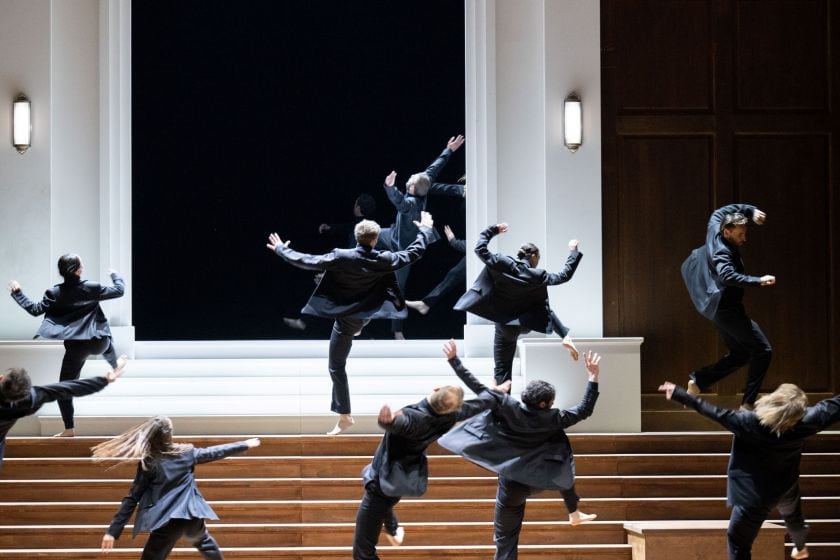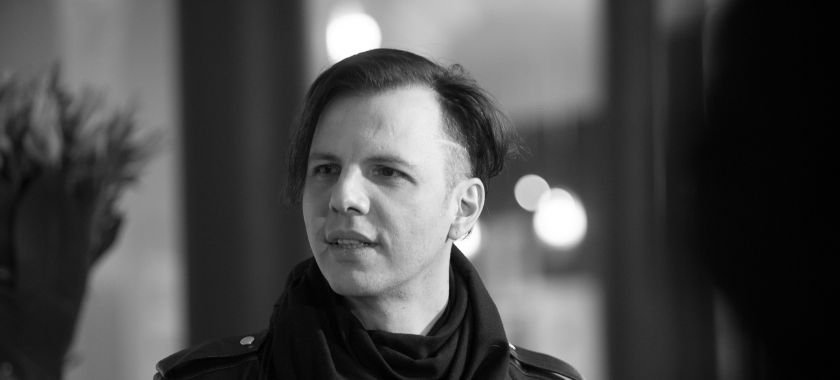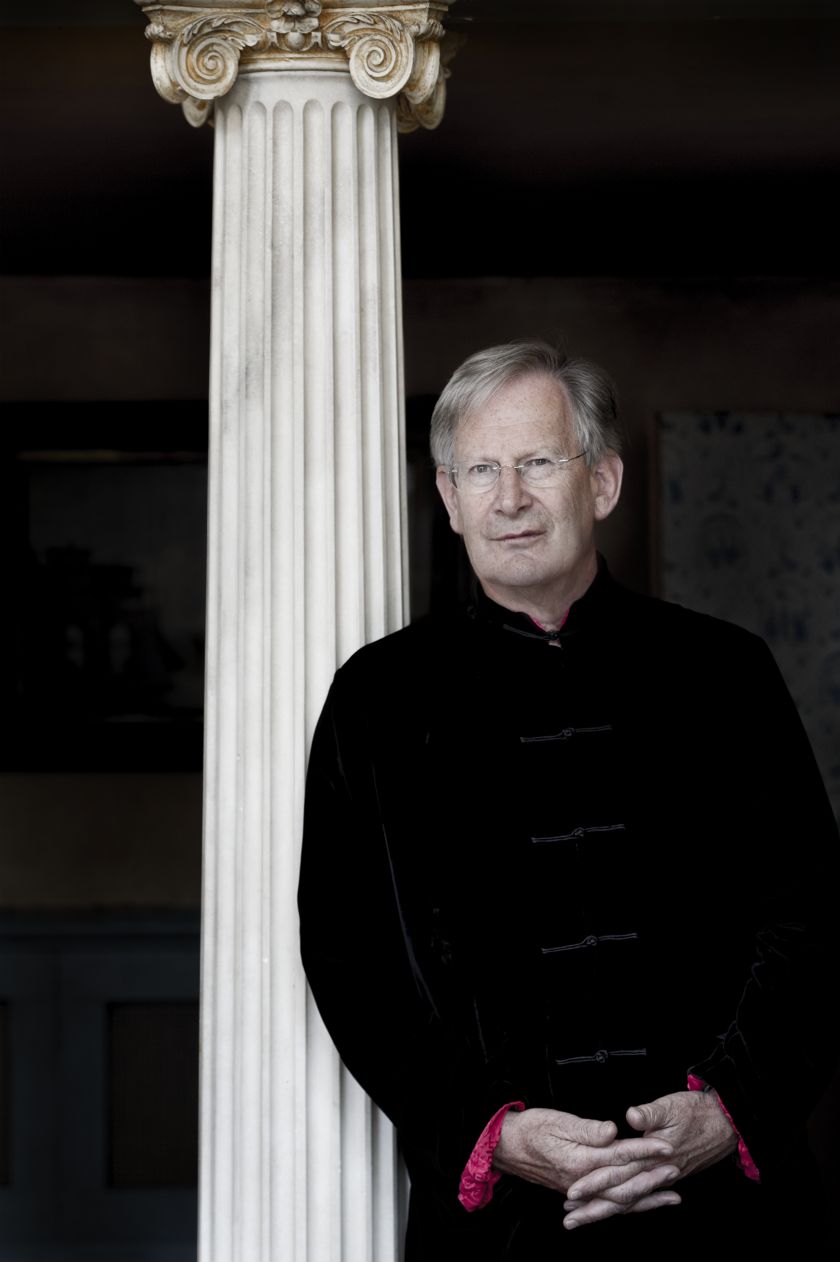Four great love stories
Orfeo & Euridice
Romeo & Giulietta
Didon & Énée
The Indian Queen
Four great love stories, none of them ending happily. Still, these three concerts and one staged performance should leave audiences satisfied.
Orfeo, who wants to bring his Euridice back from the underworld. Romeo and Giulietta, whose affection unites them beyond death. A love triangle amidst the fictitious struggle to conquer Mexico, and the doomed passion of Didon, Queen of Carthage, and Énée, the hero of Troy: with Orfeo ed Euridice, I Capuleti e i Montecchi, The Indian Queen and Les Troyens, the Salzburg Festival presents great love stories in one staged production and three operas in concert, all of them doomed.

Christoph Willibald Gluck’s Orfeo ed Euridice is a revival from the Whitsun Festival. The tale of the singer who tries to retrieve his deceased wife from the underworld through the power of music will be performed in the so-called Parma version of 1769. Cecilia Bartoli embodies the singer who places all his trust in his art: “I feel encouraged whenever I read of the wonderful effect of Orpheus’ music,” says Bartoli. “How it calmed the most threatening enemies – even death – and changed lives in a manner that would be unthinkable if Orpheus had not tried, in desperation, to challenge the eternal laws of the world. In Orpheus, we encounter a hero who altered the preordained unfolding of fate through his music – that explains why he has attracted the attention of composers especially.”
Bartoli is collaborating with the director Christof Loy for the second time, after Ariodante in 2017. To him, Orfeo/Orpheus is someone whose “artistic abilities are heightened even further because of an extreme emotional experience”. Especially in this version, he calls the opera an “almost incessant monologue by Orpheus, contrasted only by lots of dance music and the choruses. Essentially, it is about producing art, occasioned by this enormous loss of the beloved.” What interests him particularly for this production “is the question of the power of the arts and music. Orpheus himself is nearly megalomaniac, believing he could suspend the laws of life and death. At the same time, I ask myself: is it perhaps a necessity for the artist to believe that he can suspend the boundaries of life and death with the help of art?” Loy also wonders whether grief for one’s own wife might even fade over time, making the production of art more important than love? “For Orpheus, this tension cannot really be resolved.”
Productive loneliness. In this manner, Loy continues, the piece about the singer who wants to save his beloved wife from the underworld, harnessing the power of his music, becomes one “great act of self-questioning. When he actually meets his wife again, he is unable to deal with the situation.” In his “necessary form of artistic egomania,” the protagonist “has advanced so far that the encounter with a real person – the person, of all people, whom he has longed for so ardently – is doomed to fail. Orpheus fails in the face of real life, he has been lost to life without noticing it, and he cannot get his feet back on solid ground.” Loy finds it telling that Orfeo “seems to fall silent at the very moment he is reunited with Euridice. That’s when he loses the ability to express himself, as he did so eloquently when he was suffering all that pain.” He can only sing his famous aria “Che farò senza Euridice?” when “he has lost her again, when she lies dead in his arms. He then reverts to his previous state, and loneliness makes him productive again as an artist.” Loy’s interpretation focuses on Orfeo, so that “Euridice really cannot be revived a second time. It would not be consequent to return to any kind of normalcy afterwards. Therefore, I will leave Orfeo’s path forward open.” Loy describes setting the action “within a relatively abstract space, almost like a concert hall, which demands that art and music happen within.” The sets were designed by Johannes Leiacker.
While the myth of antiquity inspired many other composers to create musical theatre works – from Monteverdi to Henze, from Offenbach to Trojahn – Gluck stands out for concentrating especially on one individual figure. He did so in his 1762 version of the opera for Vienna, and even more so in the version created in 1769 for the celebrations of the wedding of the Spanish Infante, Duke Ferdinand of Parma from the House of Bourbon, and the Austrian Archduchess Maria Amalia.
For the Parma version, Gluck transposed the role of Orfeo, originally written for contralto, to the soprano range, accommodating the soprano castrato Giuseppe Milico, a famous vocalist at the time: “That suits Cecilia Bartoli very much. The attractive thing is that the figure seems even more endangered, more androgynous this way, and is characterized even more as a borderline figure than the contralto range we are more accustomed to,” Loy explains.
Performances of Christoph Willibald Gluck’s opera have a long tradition in Salzburg; Bruno Walter conducted a staged version here in 1931, inviting the legendary Margarete Wallmann and her dance ensemble to Salzburg to contribute to the stage action. Christof Loy is also bringing his own group of dancers for his production. Under the baton of Gianluca Capuano, Mélissa Petit in the role of Euridice joins Cecilia Bartoli. Amore will be sung by Madison Nonoa. Les Musiciens du Prince – Monaco perform.

Intimate harmony. Love beyond death is also the focus of the “tragedia lirica” I Capuleti e i Montecchi by Vincenzo Bellini, performed in concert at the Felsenreitschule. Anyone assuming Shakespeare as the source of the story would be mistaken here: when Bellini composed the opera within a few weeks in 1830 for the Teatro La Fenice in Venice, he did so on the basis of a libretto by Felice Romani. This author had modelled his libretto for Nicola Vaccai’s opera Giulietta e Romeo on Luigi Scevola’s eponymous tragedy and other sources. Surely, Romani was familiar with Matteo Bandello’s novella La sfortunata morte di due infelicissimi amanti, which Shakespeare, in turn, also used as inspiration.
In his bel canto version of the most famous love tragedy in the history of literature, Bellini assigned the role of Romeo to a mezzo-soprano, allowing the two female voices to achieve a special degree of intimate harmony. As Hector Berlioz wrote: “These two voices, which resound as if they were one, symbolizing a perfect union, give the melody extraordinary verve. I confess that I was suddenly gripped by emotion and applauded enthusiastically.” At the same time, the two female voices in this almost painfully beautifully music provide a powerful contrast to the cold society dominated by male voices which ultimately breaks the two lovers.
In Salzburg, it will be the voices of Elsa Dreisig as Giulietta and Aigul Akhmetshina as Romeo merging as one. Michele Pertusi sings the role of Capellio, Pene Pati that of Tebaldo, and Roberto Tagliavini that of Lorenzo. In this concert performance, Marco Armiliato conducts the Mozarteum Orchestra Salzburg and the Philharmonia Chorus Vienna, prepared by Walter Zeh.

In love with the enemy. Another opera dominated by unfulfilled love is Henry Purcell’s The Indian Queen. In the original version, which is based on a play by John Dryden and Robert Howard, the lovers are defeated by the fictitious conflict between the Aztecs and the Inka. In the original, the daughter of the Inka ruler is not only adored by the warrior Montezuma, but also by Acacis. In Salzburg, however, the audience will witness a concert version which director Peter Sellars has created, including a new framework for the action. This is based on Rosario Aguilar’s novel La niña blanca y los pájaros sin pies, telling the story of the Spanish conquest of Central America from the perspectives of three women. One of them is the daughter of a Maya chieftain who is given to one of the conquerors as a mistress. This is done with the notion that it might enable her to spy for her people. She, however, falls in the love with the enemy. Her hope that he might abandon his conquering rage for love of her turns out to be in vain. Power means more to the man she loves than her affection. The original 50 minutes of music written by Purcell for The Indian Queen at the height of his career as a stage composer have been expanded by Sellars and the conductor Teodor Currentzis to encompass other expressive solo songs and arias by Purcell, as well as a selection of his sacred choral works. The soloists include Jeanine De Bique, Jarrett Ott, Julian Prégardien and Rachel Redmond.
The apparition of a ghost reminds him of his destiny

A sense of duty that is stronger than love is also the subject of Les Troyens by Hector Berlioz, this summer’s third opera in concert at the Salzburg Festival. Énée, who has fled from Troy on a mission to build a new state in Italy, falls in love with Didon, Queen of Carthage, in the course of his journey. However, she fails to keep him in Carthage, even if their affection culminates in the intimate duet “Nuit d’ivresse et d’extase infinie”. The apparition of a ghost reminds him of his destiny. The “grand opéra” uses a libretto which Berlioz himself loosely based on Virgil’s Aeneis. The opera is monumental in scope and innovative in its epic forces, requiring a multitude of singers, choristers and orchestral musicians. During the composer’s lifetime, the work, which he composed between 1856 and 1858, was never performed; only in the 20th century was it first shown as a whole. Even if the fate of the Trojan Énée holds the opera together, the seeress Cassandre and the Queen of Carthage, Didon, are dominant figures. In Salzburg, Paula Murrihy will sing the role of Didon and Alice Coote that of Cassandra. Michael Spyres is Énée. John Eliot Gardiner conducts the Orchestre Révolutionnaire et Romantique.
Much as all four operas have heartfelt, touching music in common, none of their protagonists are granted happy endings.
First published on 20.05.2023 in Die Presse Kultur Spezial: Salzburger Festspiele
Theresa Steininger
Translation: Alexa Nieschlag
